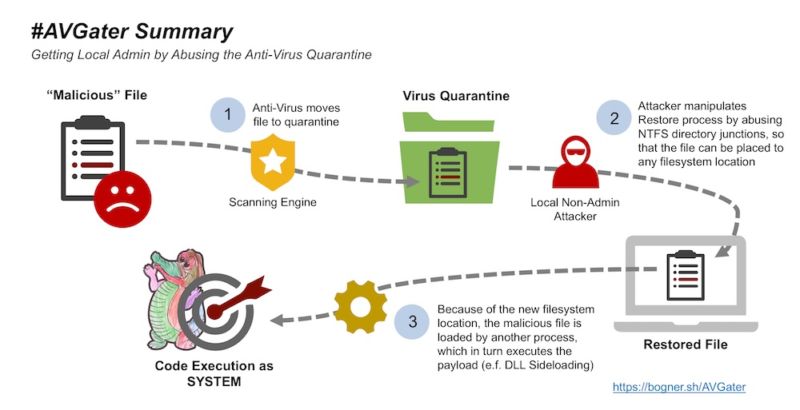How AV can open you to attacks that otherwise wouldn’t be possible

Enlarge (credit: Florian Bogner)
Antivirus programs, in many cases, make us safer on the Internet. Other times, they open us to attacks that otherwise wouldn’t be possible. On Friday, a researcher documented an example of the latter—a vulnerability he found in about a dozen name-brand AV programs that allows attackers who already have a toehold on a targeted computer to gain complete system control.
AVGater, as the researcher is calling the vulnerability, works by relocating malware already put into an AV quarantine folder to a location of the attacker’s choosing. Attackers can exploit it by first getting a vulnerable AV program to quarantine a piece of malicious code and then moving it into a sensitive directory such as C:\Windows or C:\Program Files, which normally would be off-limits to the attacker. Six of the affected AV programs have patched the vulnerability after it was privately reported. The remaining brands have yet to fix it, said Florian Bogner, a Vienna, Austria-based security researcher who gets paid to hack businesses so he can help them identify weaknesses in their networks.
Bogner said he developed a series of AVGater exploits during several assignments that called for him to penetrate deep inside customer networks. Using malicious phishing e-mails, he was able to infect employee PCs, but he still faced a significant challenge. Because company administrators set up the PCs to run with limited system privileges, Bogner’s malware was unable to access the password database—known as the Security Account Manager—that stored credentials he needed to pivot onto the corporate network.
Read 8 remaining paragraphs | Comments